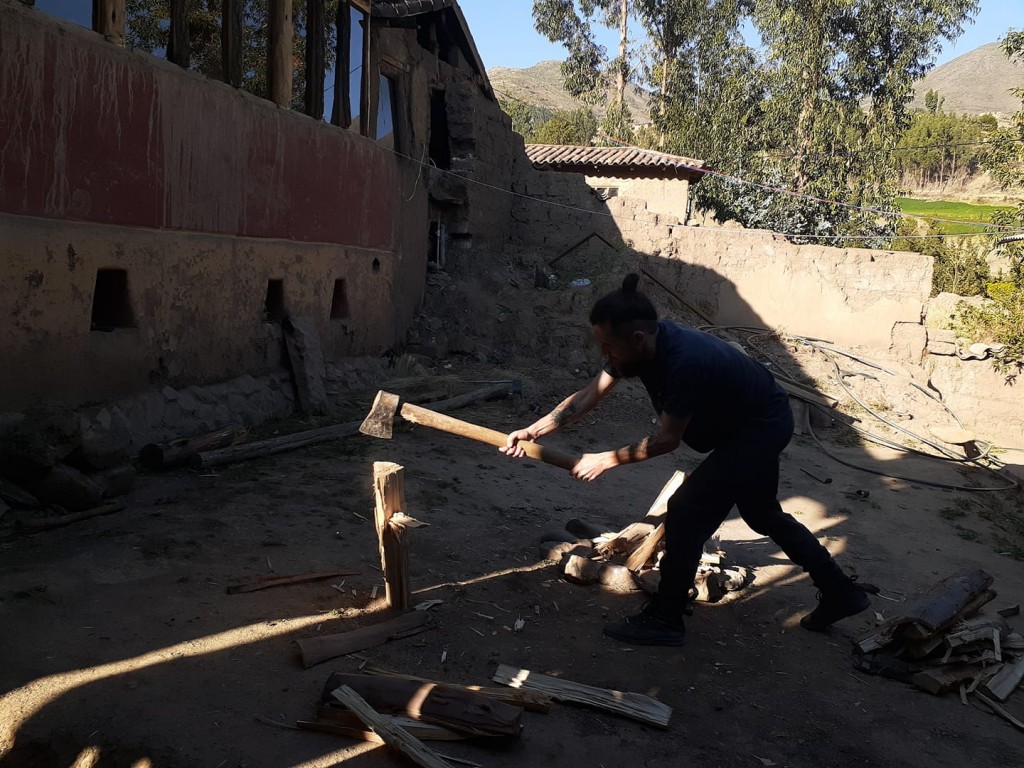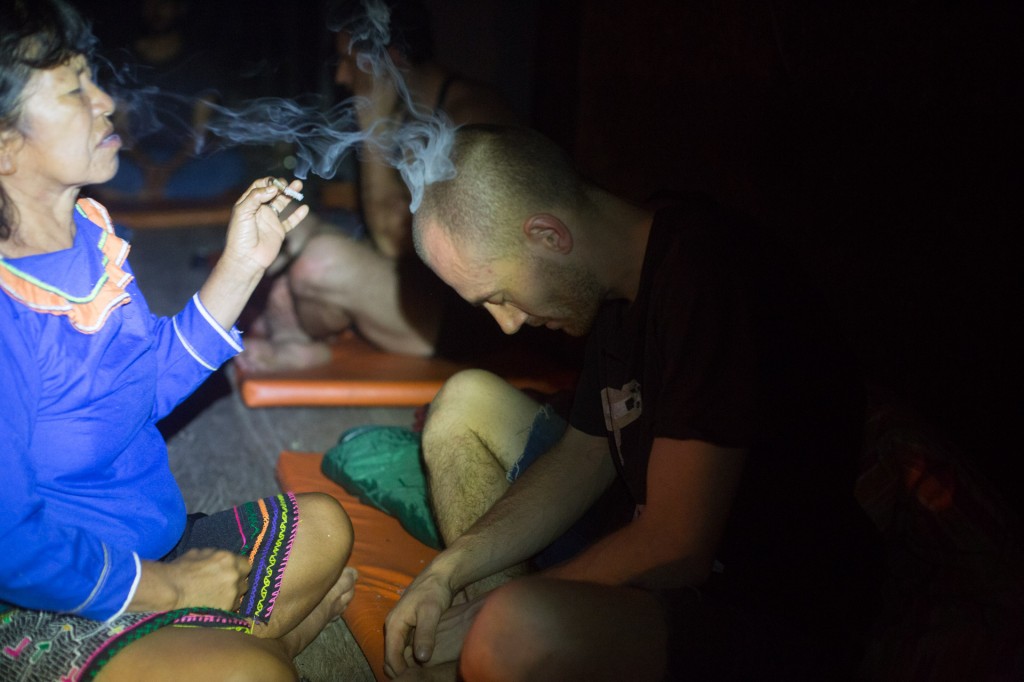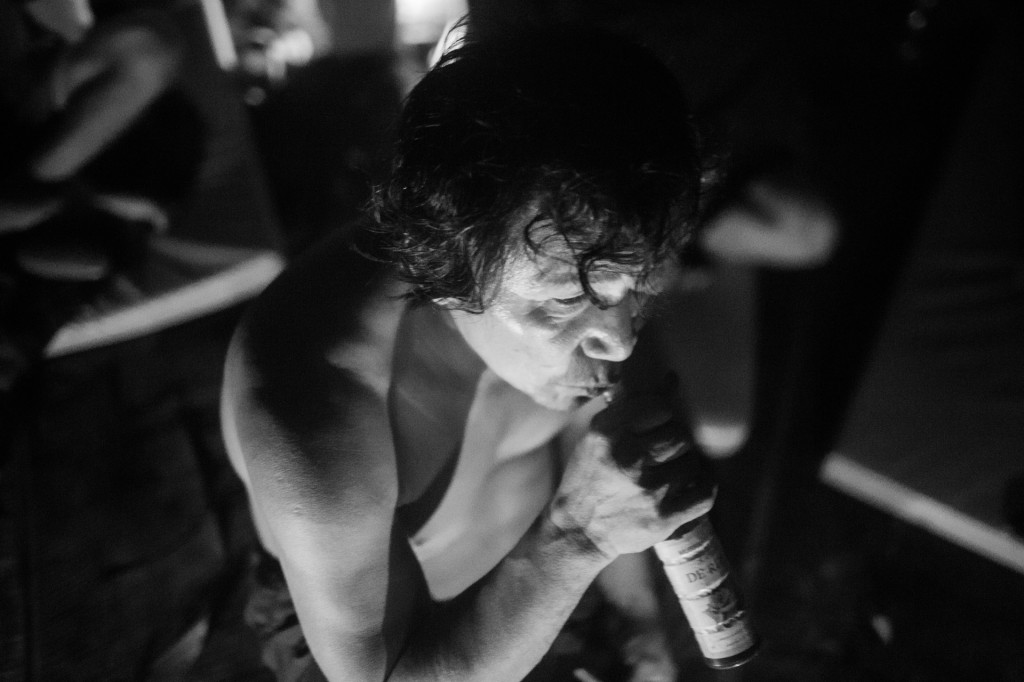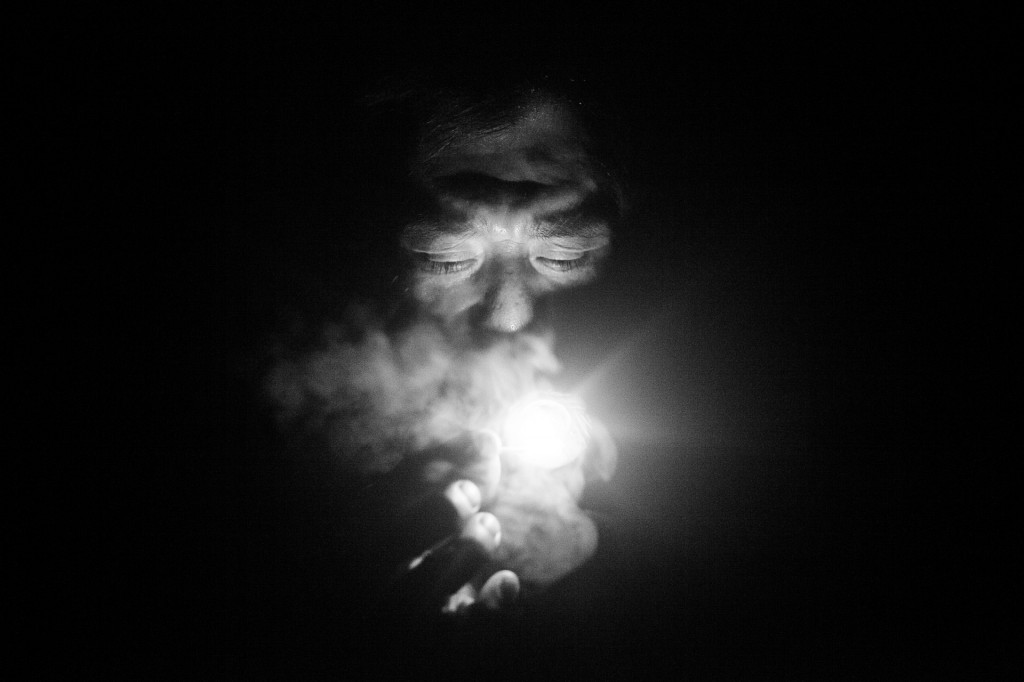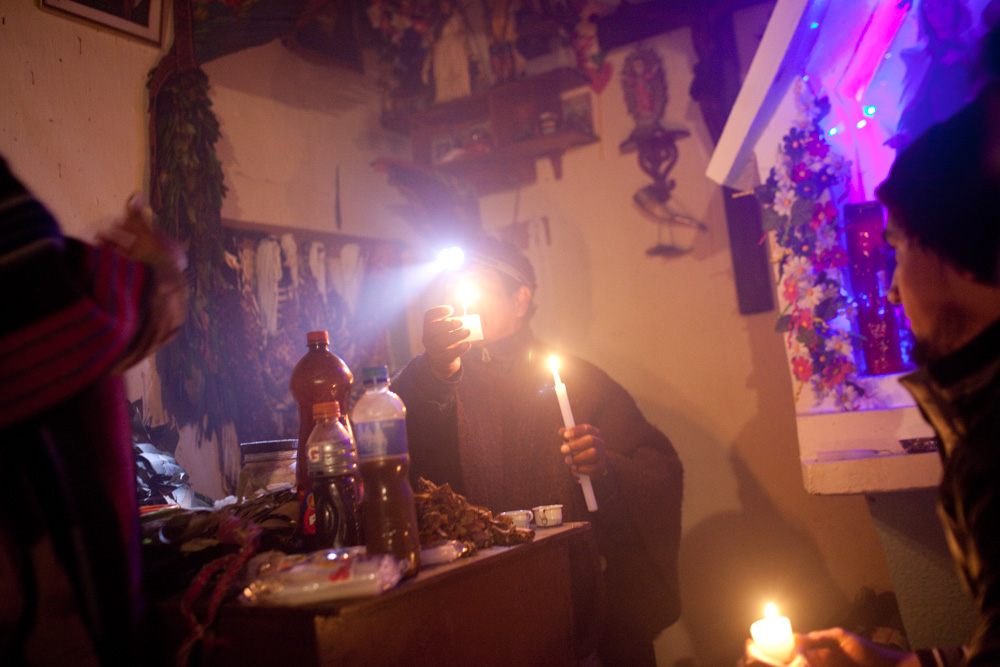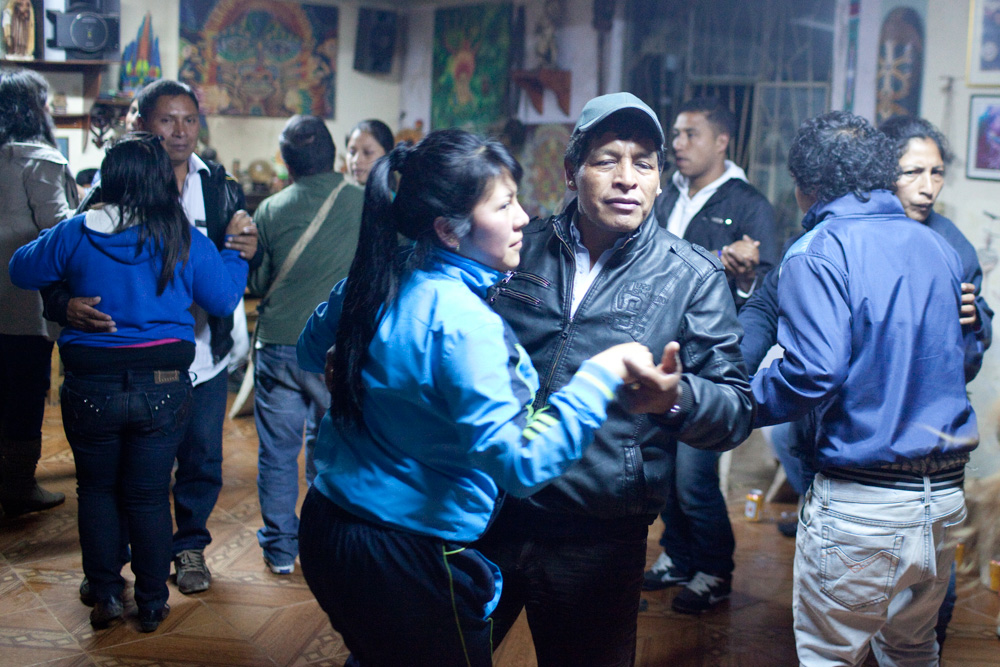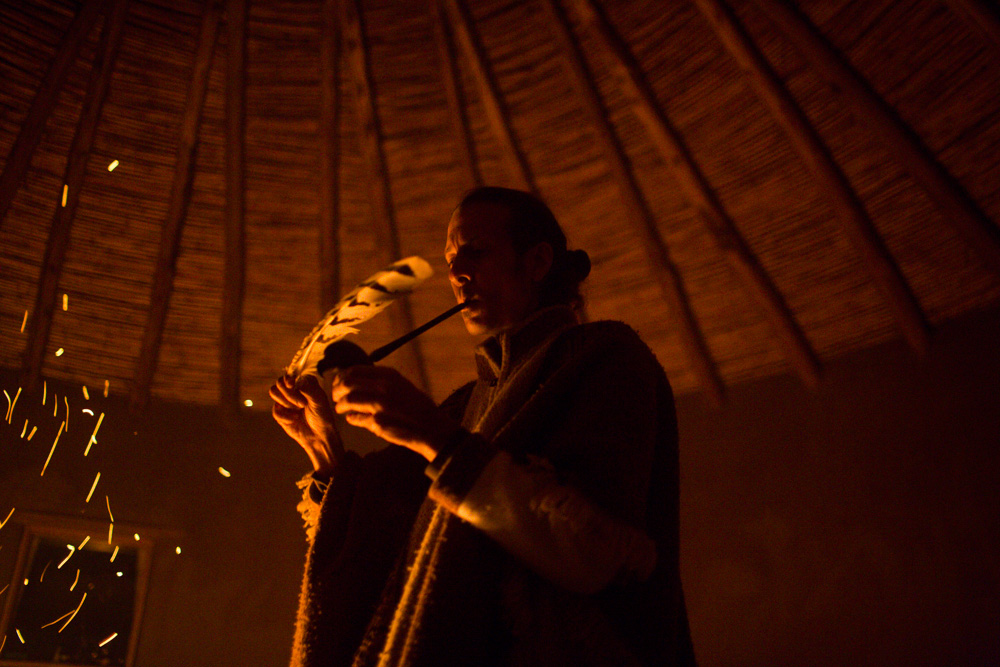
There has been a lot of doubts on my path recently. About choices, about effectiveness. We left the jungle to see, after a year of sedentary lifestyle, if road will bring solutions. Less control for sure, that ever relapsing disease. Surprise, opening to something new. After continuosly working with Shipibos for such a long time I needed to step out of this beautiful but narrow format, to be able to open more again to intuition, less to tradition and routine. Routine, killer of joy, didn’t reward me in exchange with some extraordinary technique improvements, so I decided this ain’t a fair deal.
So we arrived in the mountains, into fairy land, some call it happy gringo bubble, but this time I came more mature, not as a seeker of illusionary unknown and rare, not as explorer who needs to go, with this characteristic modern western obsession, where “no one” has gone before, but as someone who acknowledges that he is a gringo and just wants to live. So free from internal obligation to produce images ( freed, in some extent, by their excess today, as well as eyes that are not of a young man any more, these small things that help to naturally shape fate, in the face of indecisiveness and hard letting go ), I was able to land in the Sacred Valley as in a substitute of home I am barred from. There is entertainment, there is more choice of food, more diverse characters to meet. Perhaps not so many as in London or Warsaw, but that is even better, not to go so straight from hermitage into supermarket. People are calmer and nicer than in my homeland, and so is the weather. Place to enjoy, to live. But of course as an addict of action, I decided to use the opportunity to continue a bit the photo / guide project, and when I saw post about ceremony with William Koroskenyi, a gringo healer I already heard about in Iquitos, I wrote to him. This was also symbolic, to break my time with the indigenous culture by drinking with a foreigner, as if I were back in the good old Europe. I came with the intention of being once again a documentalist, but shitty low light in the place and great medicine both ruled that my input and my experience will be of a different kind. So there are no great images here, perhaps, but the experience was a great one, and that is perhaps more important and another sign about the path to follow.
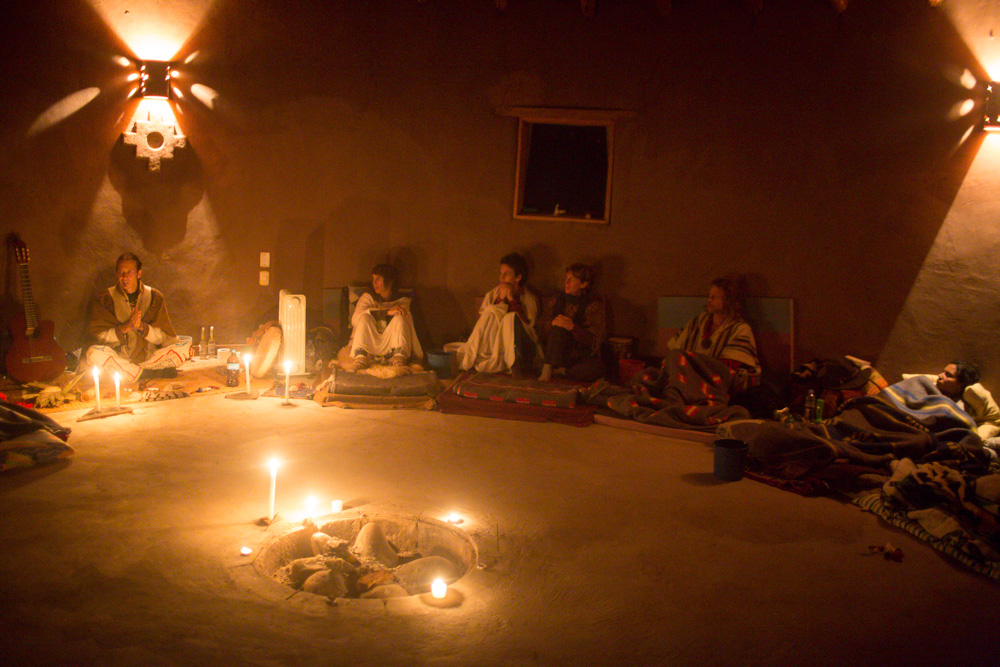
To drink in the mountains is a whole different game than in the jungle. In some ways, more challenging, as ayahuasca doesn’t really like the cold, but people not used to heat and mosquitos appreciate cold air one can sip when things become to dense inside. For me this cold breeze is also refreshing these days and brings back the scent of first ceremonies on the other side of great ocean. It feels fresh, it feels clean. I don’t think of sneaky spirits of the jungle, of devils and brujeria, I think about fast brother wind, that always was close to my soul. Sacred Valley is all about “hanan”, the high world, the Father Sky, condor and flight rather than snake and chtonic ambiguity of the lowland forest. I was always rather weary of these upward gazes, feeling they often conceal unresolved issues, smelling of priests, of religion, be it our own pious men in black, spiritual functionaries of Inca empires, or any other men of the high pulpit. I have always liked the doubt, the trickster, but trickster teaches the value of change, and I have grown weary of my doubts. So when I step into the maloca for ceremony with William, I don’t think it is a coincidence that I am walking the tree of life, from the trial of fire and snakes, towards the higher realm.
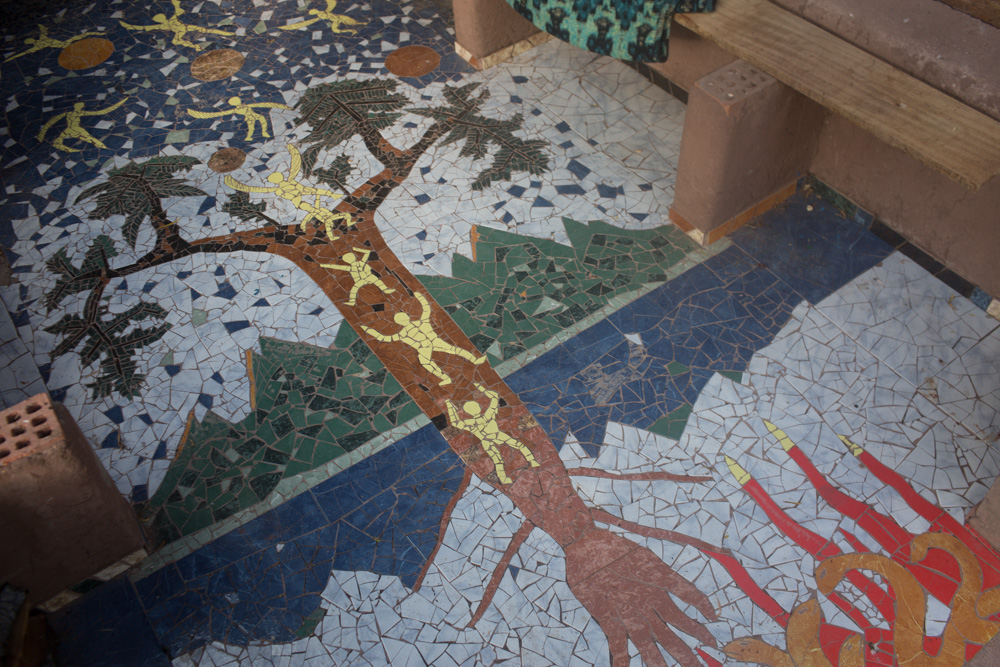
William works together with his partner Pamela. He has been studying Amazonian shamanism for years now, very thorough but also open to intuition, to being guided by plants and experience itself, rather than only dogma of the culture. Pamela seems to be more of a fusion of different healing modalities, of feeling, flow, touch and direct contact with people. William creates the space, the steady rhytm, upon which others can experiment, open up, and Pamela sneaks around with her energy. They complement each other in the performance, but more important perhaps, show the integration of this medicine, so necessary in this world of many gurus who claim to love the whole world because they are unable to hold balanced relationship with their nearest person.
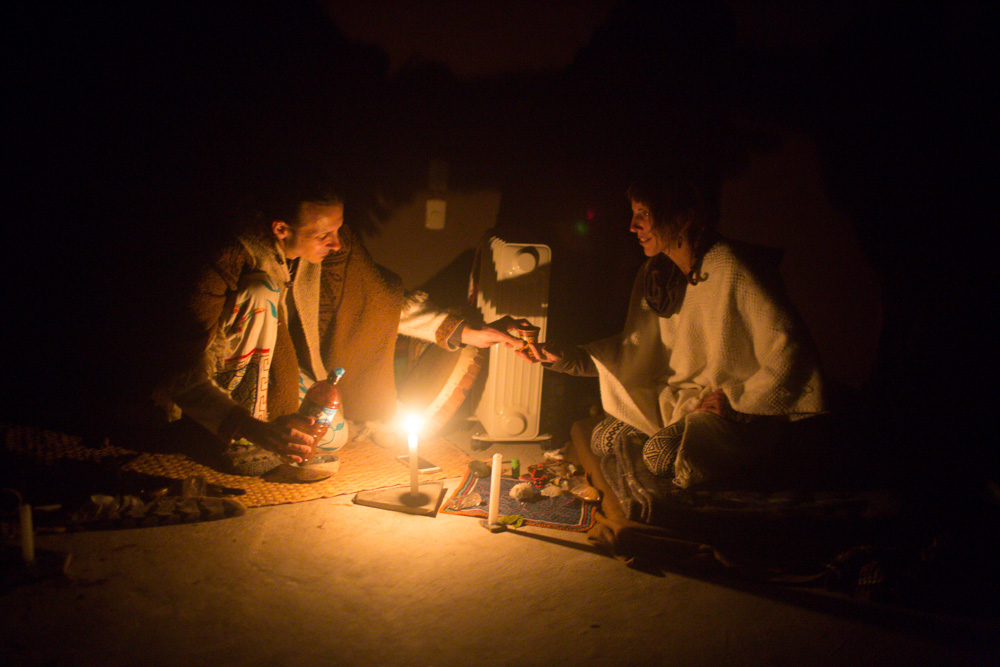
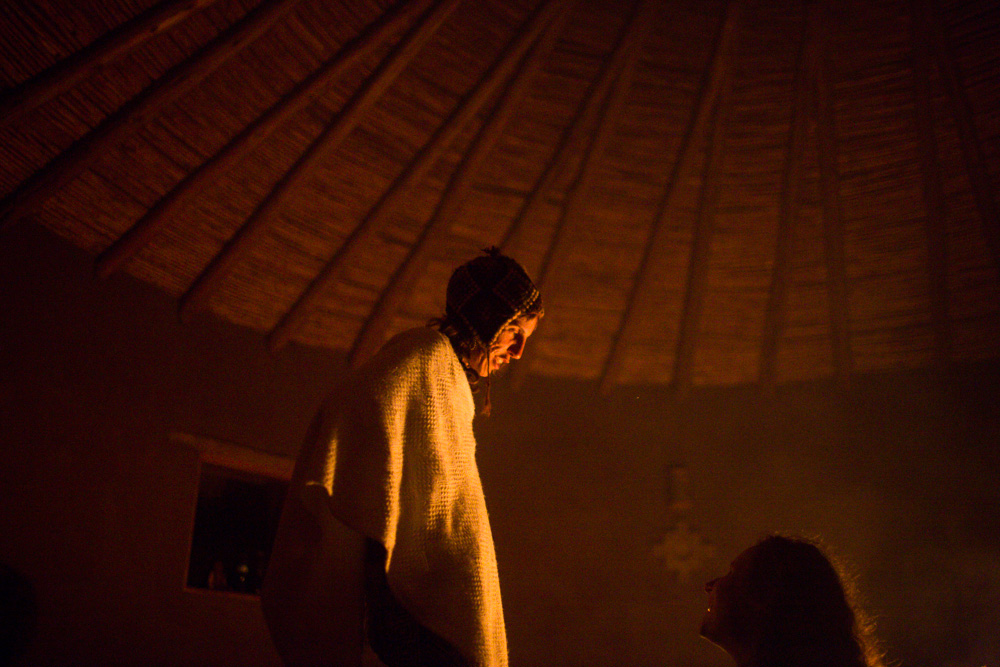
There is a lot of setting up the space. Preparation, grounding, talking, explanation. Cleansing and calming. Step by step, with no hurry, with all and each and every one in proper order. It builds the climax, it prolongs the session, it gives it added value, regardless of our belief about actual value of certain gestures, such as tobacco sopladas. This is good inspiration for me, often carried away by my impatience, by inner fire, dismissing the uncessary. Ceremonial structure can teach about that – we can either slowly dismiss everything as superflous, superstition, just take our psychedelics with Brian Eno’s smartphone app and in doing so discard all tradition, all need for human presence and interaction. But by doing so we desacralize all world, bring everything down to utility and end up in the same loneliness and despair we tried to escape in the first place with aid of plant medicines. Yes, it is cheaper, maybe even faster to do our shopping in cashierless supermarket, but I enjoy wasting time with campesinas in mercado of Pisac. Yes, I could just get my potent brew online and drink it with unlimited diversity of Spotify soundtrack, doing away with mapacho smoke, but I want to feel William’s breath in the palms of my hand. I want everything to have meaning. To appreciate. To live for the process, rather than just the outcome.
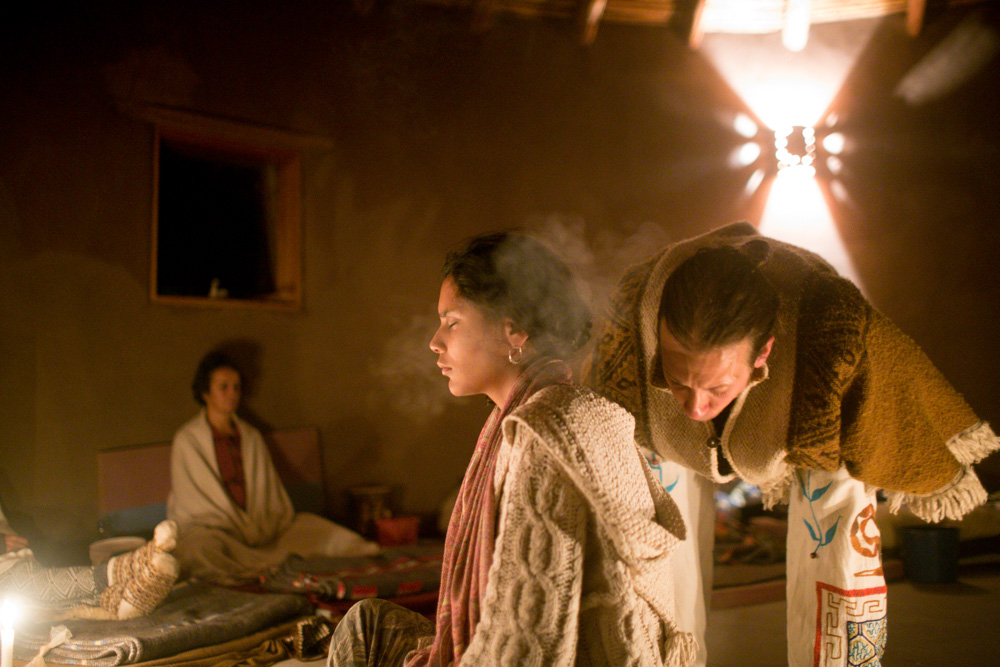
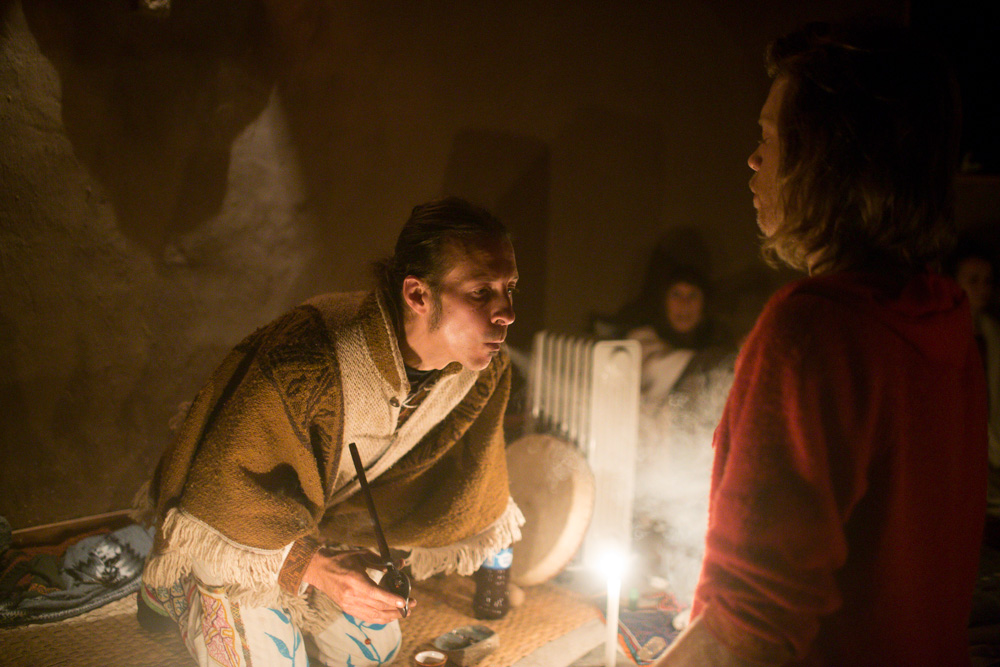
Not only with chill of nature around us I am closing sentimental loop to my first ceremony ever. Since we came from the jungle my sinus is blocked again, eternal problem since early colds of my youth. It subsided in the tropics, but here it is again, justifying ceremonial rape, medicine that likes a good reason for its use, and without it can easily turn into another mindless habit. A round is served, and we are ready to start.
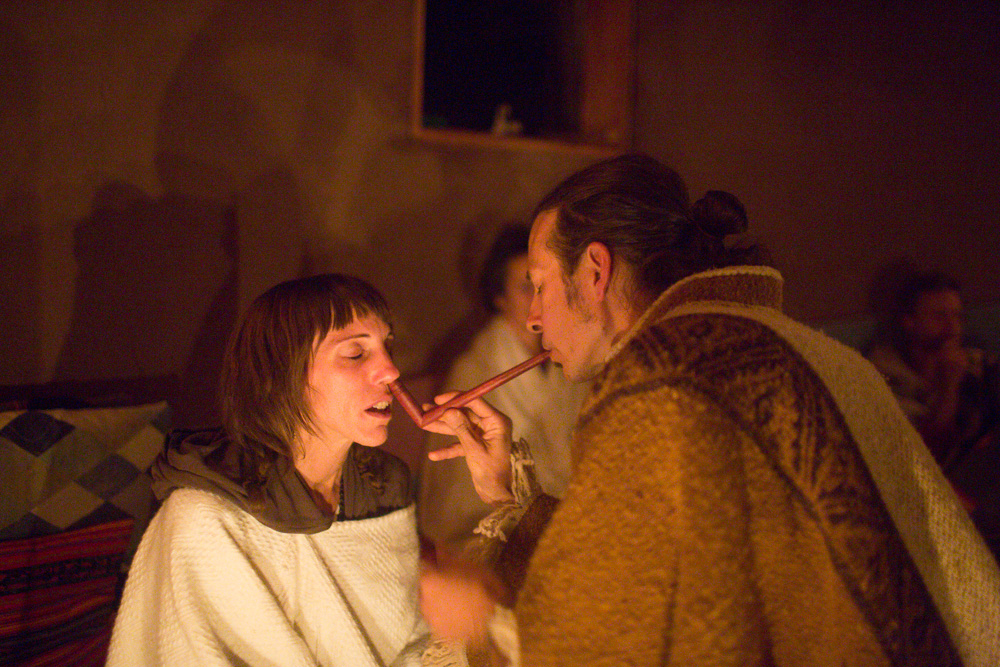
Brew was very tasty, rare thing, but not impossible, when one knows how to cook. Mostly chacruna providing light, but some huambissa too, which I could feel, it is always more physical/medicinal in my experience. The first cup, full one, started coming up strong, I purged, apparently trying to avoid harder work, and of course then regretted it as I sat just listening to icaros, feeling a little buzz. I was in a different position however then during most ceremonies of last year, when I had been in charge of the show and somehow responsible for it, this time as a guest I could really accept whatever happens. When the time for second round came, I was of course one of the few to take it.
William sings classical ribereno style, mestizo Spanish icaros, with rich, deep voice, long, stable, he walks around with his chakapa, sometimes sits down with a particular person. Pamela is more random, less predictable, her songs can go through different, sometimes unpleasant, sometimes touching, freaky registers, which for me is always more inspiring, closer to the primitive, improvised shamanism, far from mind and memory, closer to the moment. They asked in the beginning to keep silent, not to join them, which was a good lesson of patience and somehow allowed me to save breath for a right moment, when it came. Out of difficult time, as usually, out of sickness and crisis comes the best singing, always been like this, almost as if this was to teach something about paradoxes of life. And these icaros are from gift from the source, rare time when my plans disappear and my mind takes a back seat. It was a release I have been waiting for a long time, maybe even months of routine and rising feeling of resignation and pointlessness. It was also a powerful lesson in gratitude, some hints about healing with it my greed, all these things I know from my path, all these humble-yourself-and-jah-jah will-guide-I, that I keep losing, in my hunger for more. Make amends, ask little, and the right times return, in fact they are here already, just wake up to it, Mundo.
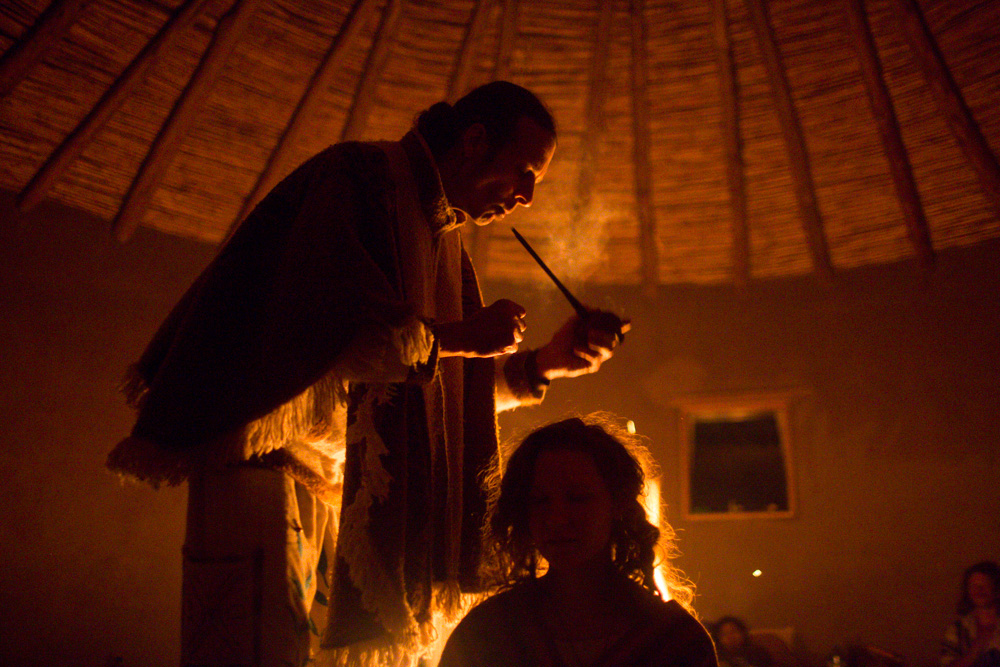
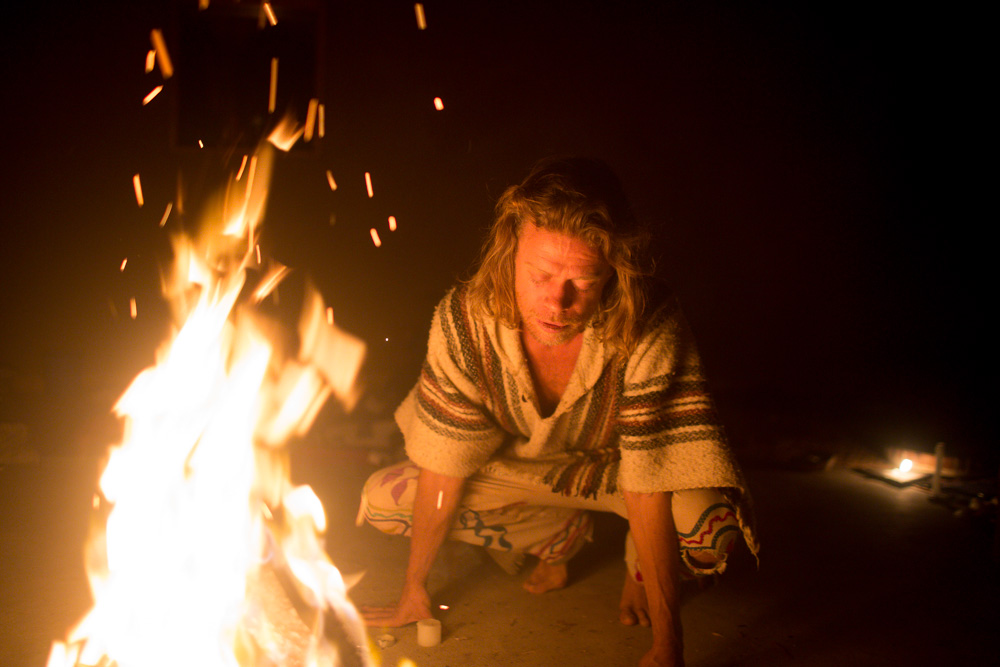
There are challenges ahead, but this kind of ceremonies gives strength to continue. Giving thanks, not only to the captains, but to all the crew who participated, co-created, even just by their presence, more so by kind words, smiles, gratitude. It all builds the house we want to live in.
The spirit is back.
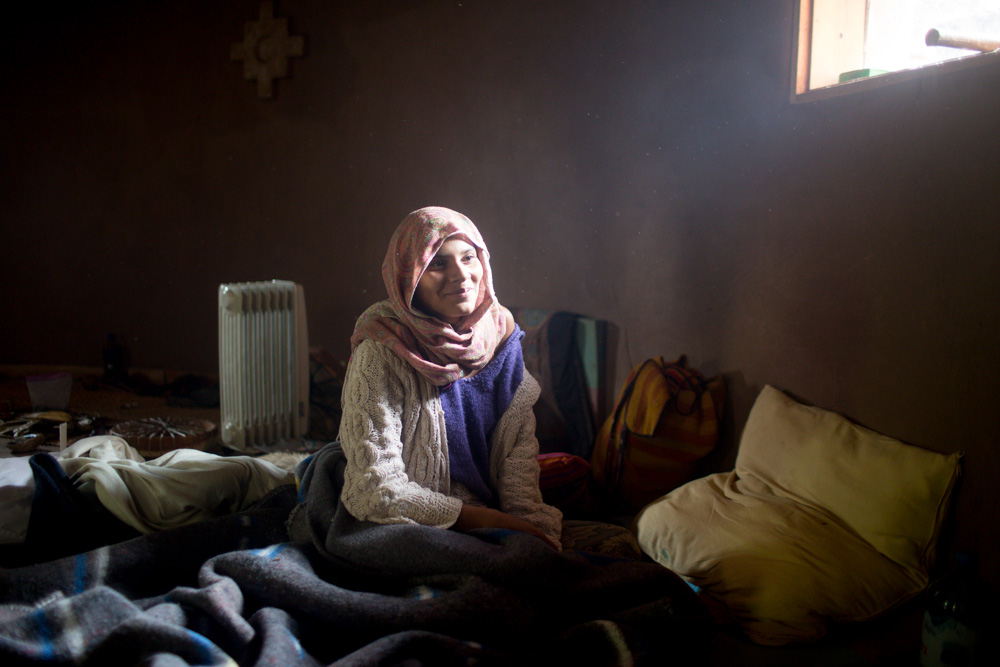
You can find William and Pamela mostly in the jungle, not far from Iquitos, Peru, where they run Avatar centre ( https://www.eywainstitute.org ), hosting retreats and dietas, and where, is Jah permits, I will be able to visit, to develop this one night stand into something deeper.

